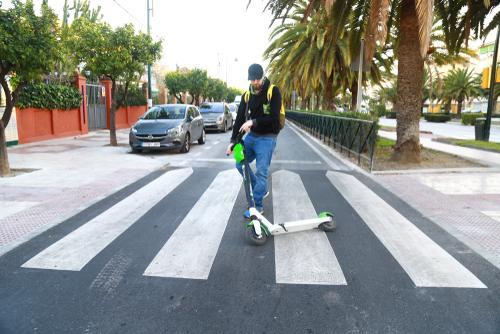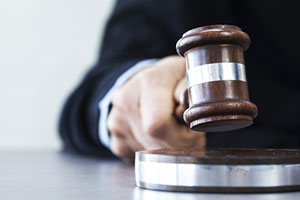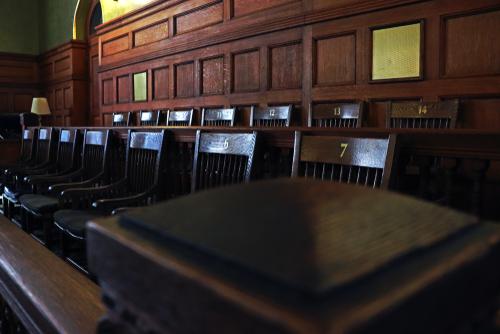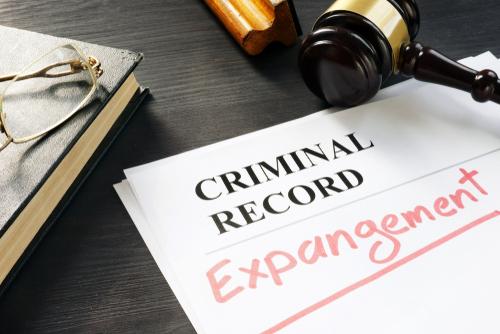Recent Blog Posts
Do Something! The Unrestricted Sale of Assault Weapons and Large Magazines Poses a Similar Public Health and Safety Threat as Does the Opioid Crisis
The shocking mass shootings in El Paso and Dayton this past weekend, on top of the numerous premeditated attacks (many by white supremacist-inspired individuals) so far in 2019, make one want to shout, “Enough! Do something about it!” Telling the public it was just the acts of one deranged individual, so go back home, say some prayers, and hope for the best simply doesn’t cut it. This attitude and “we can’t do anything about it” public pronouncements are a lie and an outrageous abdication of government’s responsibility to protect the health and safety of all Americans.
While no one gun control regulation or public health initiative is a panacea, our country needs to try many and implement them now, and at all levels of government – federal, state and local, to try and stop the brutal carnage that target and kills mothers, babies, and families with military-style assault weaponry that are readily available. As President Franklin Roosevelt responded to Republican critics of his Administration’s attempts to develop and implement new programs to address the Great Depression poverty, unemployment, and economic dislocation, “It is common sense to take a method and try it. If it fails, admit it frankly and try another. But above all, try something.”
Can I Obtain Compensation for an Injury that Occurred Due to Negligent Security?
Someone who is injured because of another person’s negligence may be able to pursue compensation through a personal injury lawsuit. There are various types of damages that a victim can receive compensation for, such as injuries that occurred and property that was damaged in the accident. However, it is important to follow the correct legal procedures in these types of cases. One type of situation in which a person may be able to pursue compensation from a property owner involves injuries that occurred because of inadequate security.
What Is Considered Adequate Security?
Adequate security varies from place to place. Some examples of the measures that a property owner should take to protect people’s safety include providing appropriate lighting, functioning locks, security patrols when necessary, and wet-floor signs. These means of security can help protect consumers of businesses as well as employees. Wisconsin statute 101.11 specifies an employer’s duty to furnish a safe place of employment. Under this law, employers shall protect the “life, health, safety, and welfare of such employees and frequenters.” This also forbids employers from requiring or allowing any employee to work in a place that is unsafe.
How Will My License Be Affected if I Am Arrested for OWI?

As is true in all 50 states, driving drunk is illegal and has severe consequences. Not only do drivers put themselves at risk, but they can also endanger the passengers in their car, pedestrians, and people in other vehicles. In Wisconsin, it is illegal for a driver who is at least 21 years old to operate a motor vehicle with a blood alcohol concentration (BAC) of 0.08 or greater. Drivers are also prohibited from driving while under the influence of intoxicants, with any detectable amount of a restricted controlled substance in their bloodstream, and/or while they are under the influence of controlled substances or other drugs. Those below the age of 21 must have complete sobriety when driving or operating a vehicle.
DUI vs. OWI
In many states, the abbreviation DUI is used to refer to the offense of driving under the influence of alcohol, drugs, or other intoxicating substances. However, Wisconsin law refers to this offense as Operating While Intoxicated, or OWI. The Wisconsin statutes consider the “physical manipulation or activation of any of the controls of a motor vehicle necessary to put it in motion” as operating a vehicle. Sec. 346.63(3)(b), Stats. OWI charges do not necessarily require the actual movement of the car, but rather, actions that could do so. For instance, an intoxicated individual who is sitting in the front seat of a stationary but running car could potentially be charged with OWI.
How Is Shared Child Custody Handled in a Wisconsin Divorce?
Issues related to child custody are often the most difficult part of a divorce. Parents must learn to balance not wanting to live under a different roof than their children and wanting the best for their kids. Determining the best way to address these issues can be challenging for a judge to determine. They must look at every facet of the child’s life and factor in each parent’s ability to meet a child’s needs. In most situations, parents will have shared or joint custody of their children. In these cases, parents will share in the right to make decisions about how to raise their children, and the children will typically spend significant amounts of time with each parent.
Are There Different Forms of Joint Custody?
Joint custody arrangements can vary significantly from family to family. The time a child spends in the care of a parent is known as placement. Primary placement refers to where the child will live the majority of the time. This parent is known as the custodial parent.
What Are Extreme Risk (Red Flag) Gun Laws? Do They Apply in Wisconsin?

In the wake of widespread mass shootings across the United States, advocates and lawmakers in many jurisdictions are pushing for new gun laws to curb gun violence. “Extreme Risk” or “Red Flag” laws are one type of new gun legislation that targets gun violence problems and have been enacted in several states.
Extreme risk laws help prevent a person in crisis from harming themselves or others by temporarily removing guns and prohibiting the purchase of firearms. Such laws permit law enforcement to remove guns or firearms from an individual if close family members, health care providers, or others close to a person identify that person as a threat to themselves or others. Activists have called upon lawmakers to pass extreme risk/red flag laws in Wisconsin. In a recent study conducted by the Centers for Disease Control and Prevention, Wisconsin ranked at about the national average for firearm deaths. Attorney General Josh Kaul, along with other state legislators, has agreed that new gun laws would be beneficial to public safety.
Who Is Responsible for Injuries in a Wisconsin Boating Accident?

Spending time on the water is a common pastime in Wisconsin because of the many bodies of water throughout our state. The most common way to do this is on jet skis and other types of motorboats. Since summer is such a popular time for visitors and owners of vacation homes to visit Wisconsin, the state’s waterways become much busier and more crowded than usual. Due to this influx of people and their boats, boating accident injuries become more likely to occur.
Common Boating Accidents and Solutions
Capsizing and swamping are two of the most common types of boating accidents that can harm those in a boat and others nearby. Capsizing occurs when a boat gets turned on its side or flips upside down. This can occur if weight is unevenly distributed throughout the boat or if reckless driving is involved. Hitting large waves can also cause a boat to flip. If a boat stays upright and fills with water, this is known as swamping.
Can I Receive Compensation for Injuries on an Electric Scooter?

Electric scooters (also known as e-scooters) are a form of transportation that is becoming more and more popular in cities across the United States. While these types of scooters are not new, the business behind them has changed. Companies such as Bird have begun offering rentable electric scooters that are placed on the side of the road for anyone to use. A person can use an app to rent an available scooter, then hop on for a ride. However, since these scooters have begun to pop up on city streets and college campuses, the number of scooter-related injuries has increased significantly, and people who are injured may be unsure about their legal options.
Governor Evers Fulfills Campaign Promise, Recreating the Pardons Board
 One of recently elected Governor Evers’ campaign promises was to address pardons in the state of Wisconsin. A pardon is similar to an expungement in that it grants a second chance to individuals who have been convicted of a crime. Having a record expunged removes the offense completely from a person’s criminal record. Pardons do not have this same power, but they do give back some of the rights that are taken away from citizens after receiving a criminal conviction. If granted a pardon, an individual can once again own a gun, vote, be on a jury, hold public office, and hold various licenses that they were not eligible for as a convicted felon. While an offense may still appear in background checks, having it pardoned can help a person put a better foot forward when seeking employment opportunities.
One of recently elected Governor Evers’ campaign promises was to address pardons in the state of Wisconsin. A pardon is similar to an expungement in that it grants a second chance to individuals who have been convicted of a crime. Having a record expunged removes the offense completely from a person’s criminal record. Pardons do not have this same power, but they do give back some of the rights that are taken away from citizens after receiving a criminal conviction. If granted a pardon, an individual can once again own a gun, vote, be on a jury, hold public office, and hold various licenses that they were not eligible for as a convicted felon. While an offense may still appear in background checks, having it pardoned can help a person put a better foot forward when seeking employment opportunities.
Governor Evers recently recreated the nine-member Pardon Advisory Board to address the thousands of pardon requests that have not been attended to. Before Evers came into office, Governor Scott Walker put the pardon process to a stop in 2011. According to The Washington Post, the Governor Evers’ office has already received requests from 1,600 individuals regarding pardons.
What Steps Are Followed When Litigating a Civil Lawsuit?

Civil litigation is the legal term for a conflict being settled in court. These conflicts can be between two or more parties, and they typically involve business deals and/or monetary disputes. If the parties, also known as the plaintiff and the defendant, cannot come to an agreement themselves, they will take the case to court to have a judge or jury make a final decision. Civil litigation cases have a specific procedure that is followed to ensure that all of the parties have a fair legal hearing.
A Guide to the Litigation Process
Any legal process may seem complicated because of the use of legal jargon. However, when the procedure is broken down and explained in layman's terms, it becomes relatively self-explanatory. A civil case will typically involve the following steps:
- Complaint and Response: The process must first begin with an initial complaint from a plaintiff about the defendant. The complaint will lay out all of the issues that the plaintiff has with the defendant. The defendant will then file an answer in response to the alleged wrongdoing.
Criminal Justice Reform Bill Could Change Wisconsin Expungement Laws
 Under Wisconsin law, expungement means “to strike or obliterate from the record all references to the defendant’s name and identity.” In other words, this removes a person’s criminal past from their record. The purpose of this is to give individuals a second chance. A criminal record can follow someone for the rest of their life, especially since online tools are available that allow anyone to research a person’s background. Websites such as Wisconsin Circuit Court Access allow users to search names and find people’s criminal records, and this can affect a person’s ability to find a job, obtain housing, or apply for education, and it can also impact someone’s personal reputation and relationships. Many advocates are calling for reform of Wisconsin’s expungement system to reduce the negative repercussions faced by people who have served a criminal sentence.
Under Wisconsin law, expungement means “to strike or obliterate from the record all references to the defendant’s name and identity.” In other words, this removes a person’s criminal past from their record. The purpose of this is to give individuals a second chance. A criminal record can follow someone for the rest of their life, especially since online tools are available that allow anyone to research a person’s background. Websites such as Wisconsin Circuit Court Access allow users to search names and find people’s criminal records, and this can affect a person’s ability to find a job, obtain housing, or apply for education, and it can also impact someone’s personal reputation and relationships. Many advocates are calling for reform of Wisconsin’s expungement system to reduce the negative repercussions faced by people who have served a criminal sentence.







